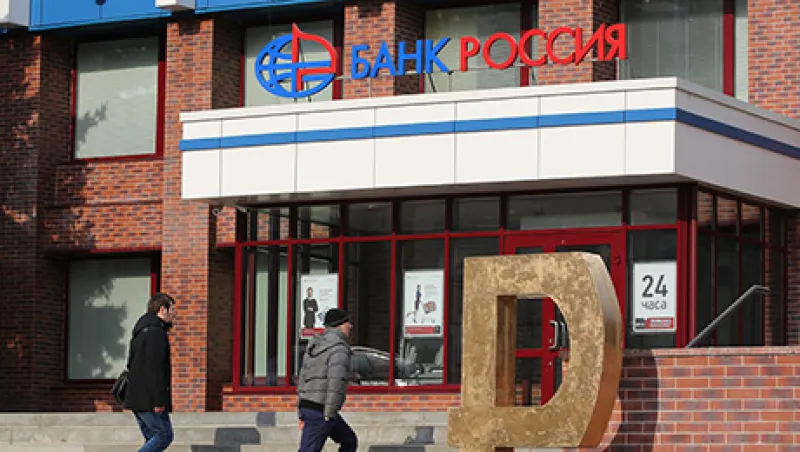
Pedestrians pass a ruble currency symbol statue outside an OAO Bank Rossiya office in Moscow, Russia, on Sunday, March 30, 2014. Investors have dumped $70 billion in assets this year as President Vladimir Putin annexed Crimea and massed troops on Ukraine's border, fueling a reprise of Cold War tensions and concern that sanctions could push Russia into a recession. Photographer: Andrey Rudakov/Bloomberg
Andrey Rudakov/Bloomberg

